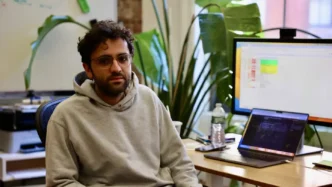When Sequoia Capital backed Mach Industries in 2023, it wasn’t just investing in another startup—it was diving into defense tech for the very first time. The company, founded by then-MIT student Ethan Thornton, has since raised over $85 million. But before that success, Mach faced a near-fatal mishap that could have shut everything down before it got off the ground.
Just months before closing its seed round, a hydrogen gun prototype being built by Mach exploded, launching shards of shrapnel and injuring a team member, as first reported by Forbes. The accident forced the fledgling company to pause all development, highlighting the dangers of building high-powered defense hardware without professional safety systems.
Speaking at StrictlyVC in San Francisco on April 3, Thornton shared details about the incident publicly for the first time. “We didn’t have the funding to do things the right way,” he explained. “It was all self-funded at that point, and safety protocols just weren’t where they needed to be.”
From Explosion to Innovation: The Rise of a Defense Tech Powerhouse
After the explosion, the team temporarily shut down until Sequoia Capital stepped in with funding. That investment gave Mach a second chance—with enough resources to hire a full safety team and meet proper development standards. The company quickly moved away from hydrogen-based weapons, which Thornton now calls “probably a bad tech bet.” Hydrogen, though promising, is highly unstable and not yet ready for large-scale military deployment.
Since its pivot, Mach Industries has expanded its vision. Today, it’s developing a cruise missile and a high-tech bomb called “Glide,” designed to launch from the edge of space. These ambitious projects have already earned Mach a U.S. Army contract, and it’s now building out a decentralized manufacturing network named “Forge,” designed to speed up weapon production nationwide.
Thornton, now just 21, believes what sets Mach apart isn’t just the tech—it’s how the company aligns with federal defense goals. “It’s less about what we can build alone,” he said, “and more about how we partner with the government to turn those builds into real military programs.”
What started with a dangerous explosion is now a defense tech success story, turning a young founder’s risky idea into one of the most closely watched startups in the national security space.













